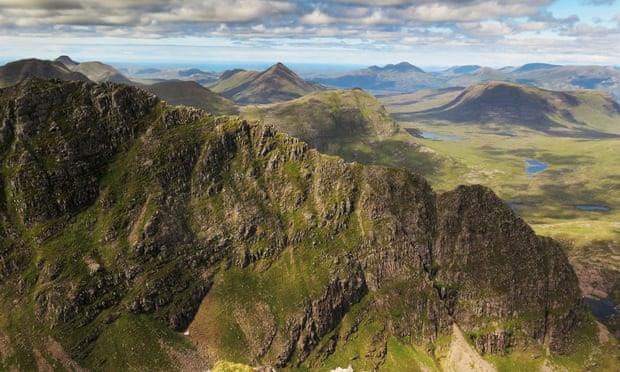Scotland faces 'apocalypse' because of global warming
Scottish officials warn if the world does not attempt to prevent global warming, Scotland and many other parts of the world will face catastrophic consequences like "apocalyptic".
Guardian cited Francesca Osowska, executive director of the Scottish Natural Heritage Agency, saying the world has only nearly a decade to transition to a low-carbon economy, before global warming has consequences. catastrophic, irreversible.
Ms. Osowska added that Scotland and other parts of the UK are facing very clear threats, and the situation can only be improved if countries take action before 2030.
"Imagine the end of the world when the water is polluted, the soil flows into mud; the towns and coastal villages are deserted after sea level rise and the coast is eroded; large areas of forestry only a few people are in rural areas, and there are no birds singing anymore, " said Osowska, director of the Scottish charity Royal Society of Edinburgh, on May 30.

Scotland is facing a threat from global warming.(Photo: Guardian).
"All of this is possible, and we can also highlight so many areas of the world that indifference has made such nightmares a reality," she stressed.
According to the Osowska director, with the current level of greenhouse gas emissions, the global warming of 1.5 degrees Celsius is almost inevitable, requiring people to adapt.
In order to prevent a worse scenario from happening, people must comprehensively change how to exploit natural resources for food production, towards more sustainable methods. In addition, the transport system and urban planning need to be built reasonably with many green spaces, the economy also needs to be significantly reformed.
Emphasizing the relationship between Earth's climate and biodiversity, Ms. Osowska said in the past, this relationship has changed greatly.
"However, the current change is unprecedented and very unusual. Our activity breaks down the harmonious relationship between Earth and biodiversity which has existed for the last 10,000-15,000 years. Gas The post-Earth future may not be able to sustain the planet with billions of people and nature as it is today, " Ms. Osowska added.
The director of the Scottish Natural Heritage Agency said that to improve the situation, the world must convert 20% of agricultural land to forestry and many other measures such as increasing clean energy output by 50%.
- Global warming delays the next ice age
- Global warming can erase the Olympics since 2085
- This car will definitely help you survive if the Earth apocalypse
- Video: 135 years of global warming summed up for more than 30 seconds
- Australia faces 'hot winter'
- The reason for the worsening winter is despite the global warming climate
- Cover the sun to block ... global warming
- Where will the sea level be highest due to global warming?
- Nature helps curb the global warming
- Global warming threatens the safety of flights
- Global warming has terrible consequences
- Two Vietnamese granaries will be submerged in the sea after 5 years?
 Is the magnetic North Pole shift dangerous to humanity?
Is the magnetic North Pole shift dangerous to humanity? Washington legalizes the recycling of human bodies into fertilizer
Washington legalizes the recycling of human bodies into fertilizer Lightning stone - the mysterious guest
Lightning stone - the mysterious guest Stunned by the mysterious sunset, strange appearance
Stunned by the mysterious sunset, strange appearance